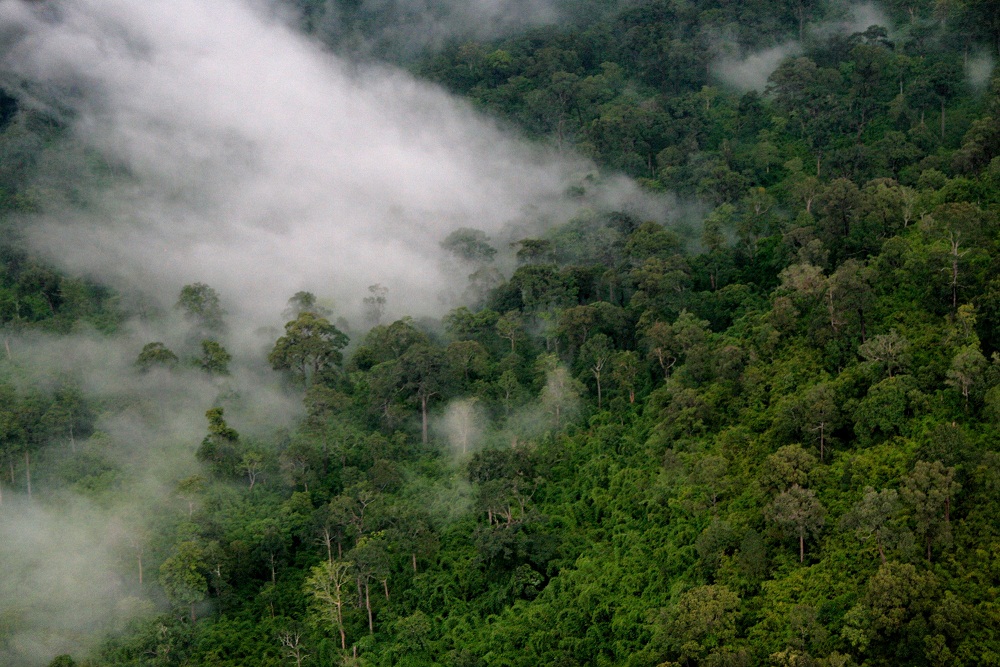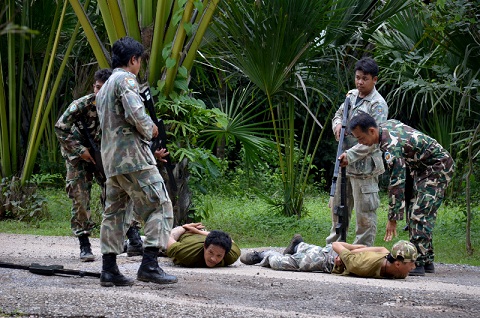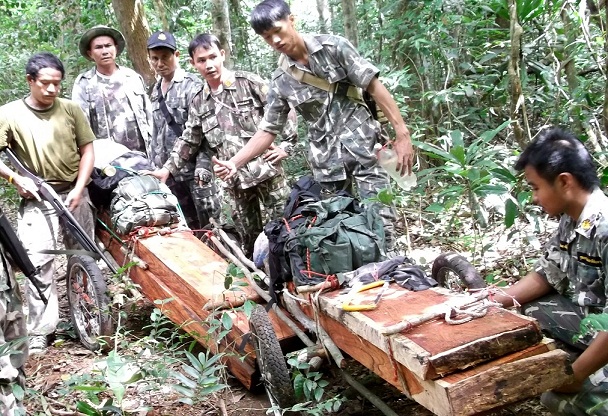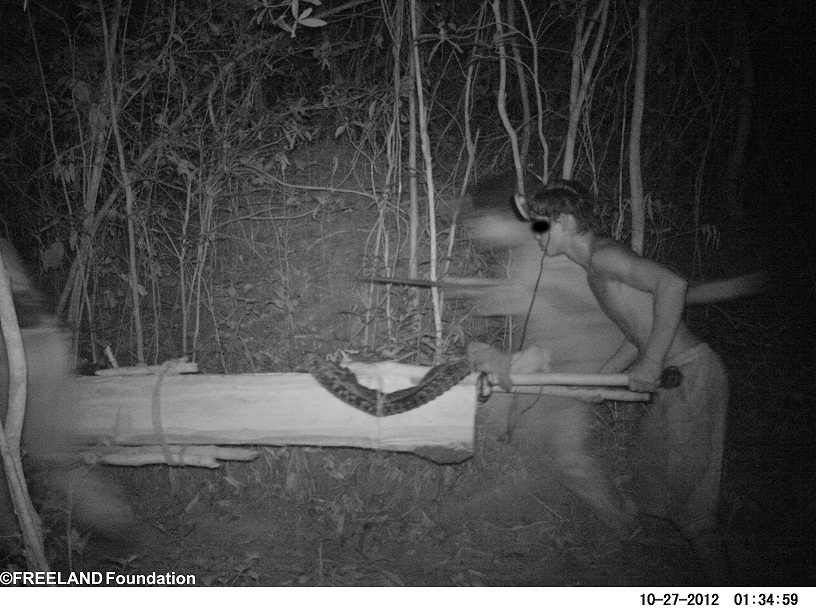True Grit: life on the trail of the rosewood poachers
Marking World Ranger Day 31 July 2014, SOS – Save Our Species wishes to bring you to the frontline of conservation. Talking with Chaloaw Kotud, Enforcement Ranger Patrol Team Leader at Thap Lan National Park, Thailand we highlight the work of the unsung heroes worldwide who are charged with protecting our wild heritage.
But there is another layer to Chaloaw’s story. He and his team are literally risking their lives 15 days a month while on patrol to intercept and prevent gangs poaching Vulnerable Siamese Rosewood (Dalbergia cochinchinensis) – a species of tropical hardwood tree. In the $20 billion global industry of wildlife crime, plants are often overlooked, over-shadowed by elephant ivory and rhino horn news. Yet it too is a high stakes market, in which rangers play a critical role - rosewood can command prices of $50,000 per cubic metre as a raw material for the illicit luxury furniture trade and people are willing to die in the battle for this rare hardwood.
Chaloaw describes life on the trail and what happens when they encounter poachers in the forests of Thap Lan National Park. “We use GPS and other technologies to plan and monitor our patrol routes. The men are trained for all aspects of forest navigation, patrol, survival, surveillance methods, arrest techniques and first aid. Furthermore, the rangers can carry weapons and ammunition, which must be registered at the ranger station before and after patrols with spent ammunition accounted for. But rangers must also be strong mentally, physically and demonstrate motivation.
Elaborating, Chaloaw continues, “we can be in the field for days at a time, so simple things like making camp and sourcing water become strategic issues. Often we supplement our meals with wild-harvested forest foods such as mushrooms and fruits. Water is generally plentiful but in extreme circumstances we can get some from bamboo or even groundwater sources, if all else fails. Depending on the patrol area, we will camp using hammocks or we sleep on the ground. Occasionally, we avoid camp fires and restrict the use of flashlights to prevent detection by poachers. You can imagine how tough that is during the colder months. The support of field provisions and other supplies from SOS for example, have been a huge morale boost - such continued support would really help us.
"When patrolling, we sometimes come across traces of poaching or the sounds of a chainsaw, for example. This is where the training kicks in. Generally patrols comprise five patrol rangers, including a team leader, but during some patrolling periods we are only three in a team - adaptability is key. Some of these poaching groups,however, are well equipped, are armed and sophisticated in their evasion tactics. So first, we evaluate the situation carefully to determine if we can make an arrest or return with backup if the poaching group is too large. Once the group’s location has been found and we are in a good position, we will conduct an ambush quickly to ensure that arrests are made safely. This element of surprise gives us an advantage and we’ve often been successful, but still some do manage to escape.
"For me personally, I’m confident in the abilities of our team especially when we’re supported by other agencies, which provides more personnel to conduct surveillance and arrests. I feel this support improves our team’s morale. We also have a strong belief in the importance of conserving the forest which spurs us on through the tough times".
The reader’s imagination might sparkle with hints of adventure and excitement, whereas in reality the daily grind of the job, the dangers and the long days require true grit: a determination to keep alert and focused on the task – in this case reducing poaching.
Every bit of support we can lend these and other rangers worldwide is valued and treasured, once we can reach out and connect with them. Sharing this story will help show appreciation for their efforts and bring our two worlds that bit closer. Please do share and visit the project page to learn more about Siamese Rosewood theft and how you can get involved with SOS.








